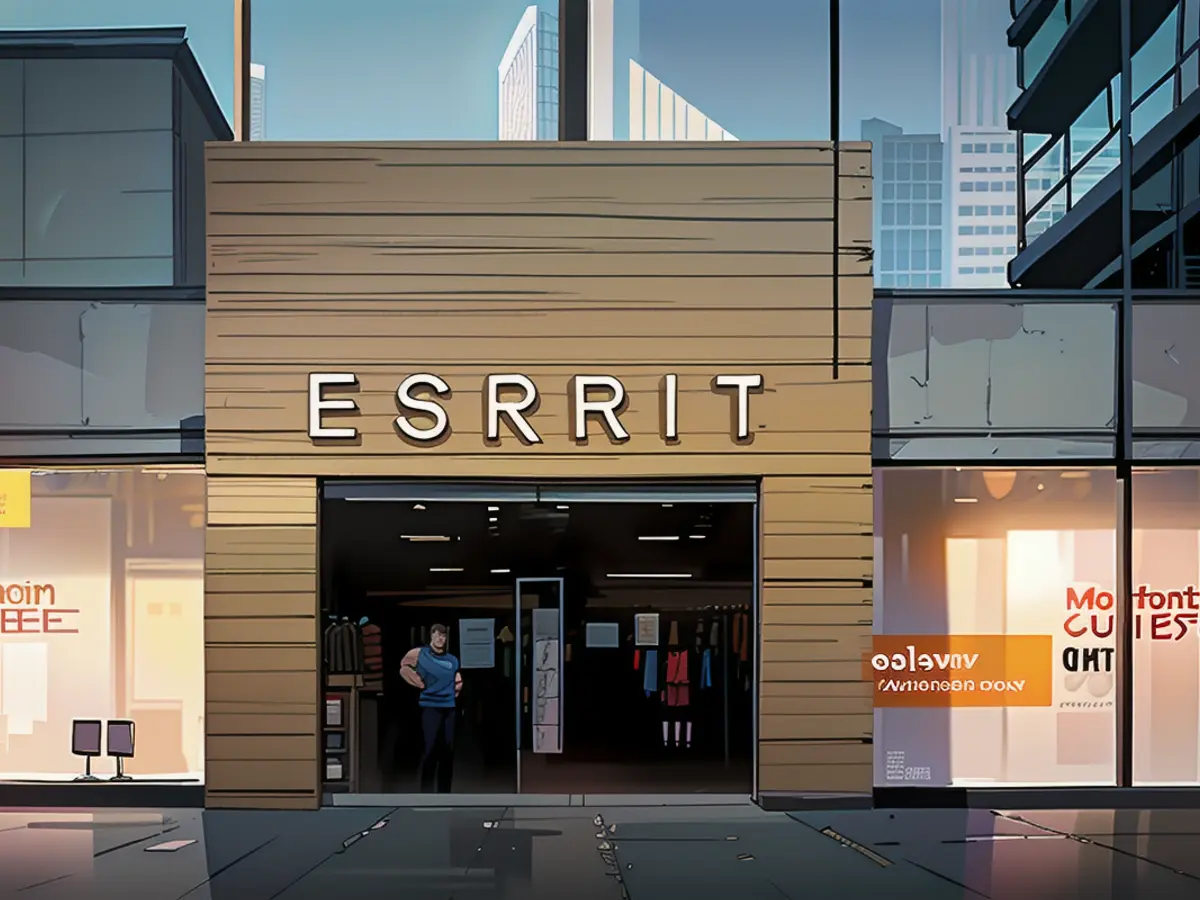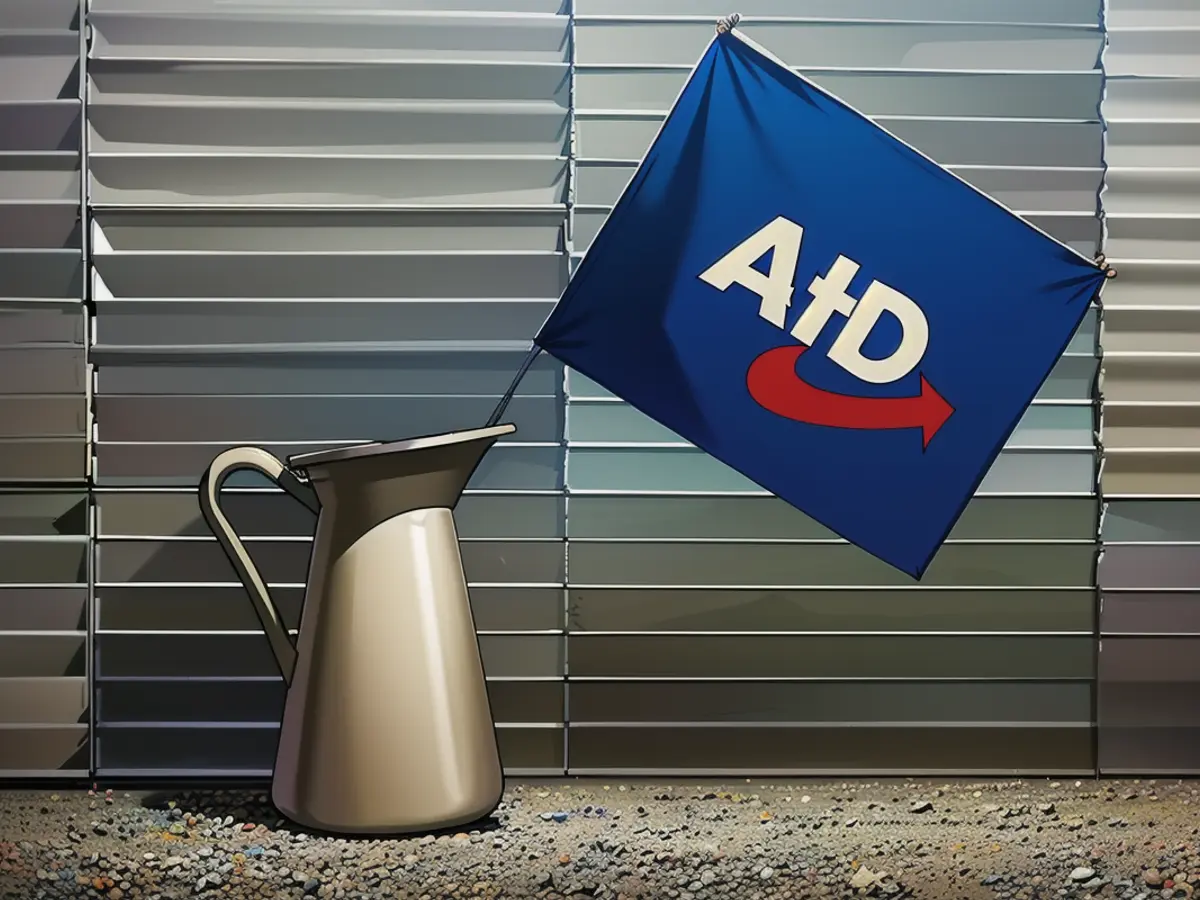Retailers raised prices and restricted consumers, possibly slowing down.
In light of escalating inflation rates, citizens have been pressured to decide between luxury and necessity for the past two years. This is a concern not only for individuals or large stores but the entire American economy, which relies heavily on customer spending, approximately two-thirds of which is derived from it. Numerous retailers have recently decreased their prices as they strive to lure consumers into their stores and encourage them to splurge on extraneous items such as new garments, home decorations, and hobby or craft kits.
Ikea, for instance, has lowered the prices of over a hundred products. In April, an 18-piece dish set at Ikea was.priced at $29.99, down from $49.99, a glass door bookcase is now available for $189, a decrease from the previous $229, and a bedframe with storage and headboard can be obtained for $499, a decrease from $549. What's striking about these product categories is that they are considered luxury items, essentially items that are desirable yet not everyday necessities, such as food and medicine.
Customers have been hesitant to spend for a year now as expenditures have increased by 20% to 30% more than they were at the same time last year, while incomes struggled to keep pace. According to Sarah Wyeth, managing director at S&P Global Ratings overseeing retail and consumer, this has been making customers of all income levels more budget-conscious.
"The 'cost-conscious consumer' isn't just a term for those with lower or middle incomes anymore. The groups that were formerly least likely to be impacted by an economic crisis have also started to tighten their belts.", said Chad Lusk of global administrative firm Alvarez & Marshal's consumer and retail division. "Retailers should design targeted discounts on high-priced discretionary products to increase spending frequency."
Retail revenue has generated a palpable sense of trepidation across the industry.
"Retailers have been uneasy for quite some time. There's less money in circulation for customers to spend.", explains Wyeth.
As of now, retailers are challenged to dispel this thrifty mindset.
"Overall retail sales haven't been disastrous, but they're also not great.", contends Zak Stambor, senior analyst on retail and ecommerce for market research organization eMarketer during an interview with CNN. "Retail sales rose 0.7% from February to March, a slower rise than the upwardly revised 0.9% increase in February. This surpassed the 0.4% increase anticipated in a FactSet poll. The figures, however, do not account for inflation.
In the last ten months, retail expenditures have climbed in seven of them, peaking in March. While some industries, such as automobiles, have seen increases in high-cost goods and robust online purchasing as well as spending on services like restaurants, travel, and entertainment, furniture, clothing, sporting goods, and electronics have remained weak.
Industry leaders are eager to modify this situation.
"A lot of retailers have asserted that discretionary spending is slowing. People are buying necessities while also downgrading prices and then calling it a day.", states Stambor. "If you wish to persuade consumers to spend, you must provide them with a compelling reason to do so. Slashed prices constitute an unparalleled opportunity to entice shoppers into stores or to their online platforms."
This tactic can be observed in Walmart. In December, they promised to introduce lower grocery prices in 2023.
"It's a well-known maneuver. It's a brilliant marketing strategy to pique public awareness, draw customers to the store, and persuade them to loosen their purse strings.", noted Stambour. "There is a strong impression of value, and value is the focus for consumers in spite of their continued spending."
Jesper Brodin, CEO of Ingka Group (Ikea Retail's Dutch holding company), told CNN in March that Ikea was reducing prices "more profoundly than it has ever done."
"This isn't rocket science here, when people have less money, we lower our prices.", commented Brodin. "During the last six to eight months, it's certainly been slower than anything we've witnessed before."
On April 18, Michaels, a popular resource for arts and crafts, also announced it was reducing the prices of 5,000 products. "It is increasingly crucial to deliver exceptional value for every customer trying to make the most of their money.", Michaels CEO Ashley Buchanan said in a statement unveiling these new deals.
In particular, Michaels promised to lower the prices of commonly purchased items like paint, markers, and pens by up to 15%. The cost of adhesives, papers, and stickers was slated to decrease by up to 20%, and painting canvases would be made available at up to 35% less.
Similarly, H&M, a go-to clothing store, revealed during its most recent quarterly financial report that it, too, would slash prices. "At the end of this year, we believe our prices will be lower than they were at the start of this year.", H&M CEO Lars Daniel Ervér stated during the discussion with analysts in March.
Other companies are charting a similar course with their price-cutting measures.
"It's really an ongoing trend this year.", confirms Stambor. "There's competition to attract consumer attention and encourage them to loosen their purses and wallets."
Keep updated by following us on social media: twitter, facebook, instagram, youtube and linkedin to stay abreast of the latest news in the retail industry.
Frida, a supplier of babycare items, revealed in February that they had lowered the price of their top-selling product, the NoseFrida, back to its initial 2014 launch price of $14.99 from its previous $17.99. Additionally, they reduced the costs of other items.
Similarly, Chuck E. Cheese, a family-friendly restaurant and children's entertainment chain, shared its plans for budget-friendly initiatives. The company publicized their intentions to decrease the prices of games and provide a 50% discount on food and drinks for a limited-time summer promotion.
According to Stambor, retailers might adopt more measures than just price cuts, including personalized deals for loyal customers or limited-time offers, to boost sales in the future.
Courtesy: Bryan Mena, CNN
Read also:
- Lack of snow also opens up new opportunities for winter tourism
- Abrupt end to e-car subsidies
- The chemical industry has little confidence
- Intersport boss hopes for sales boom through sporting events
Source: edition.cnn.com








